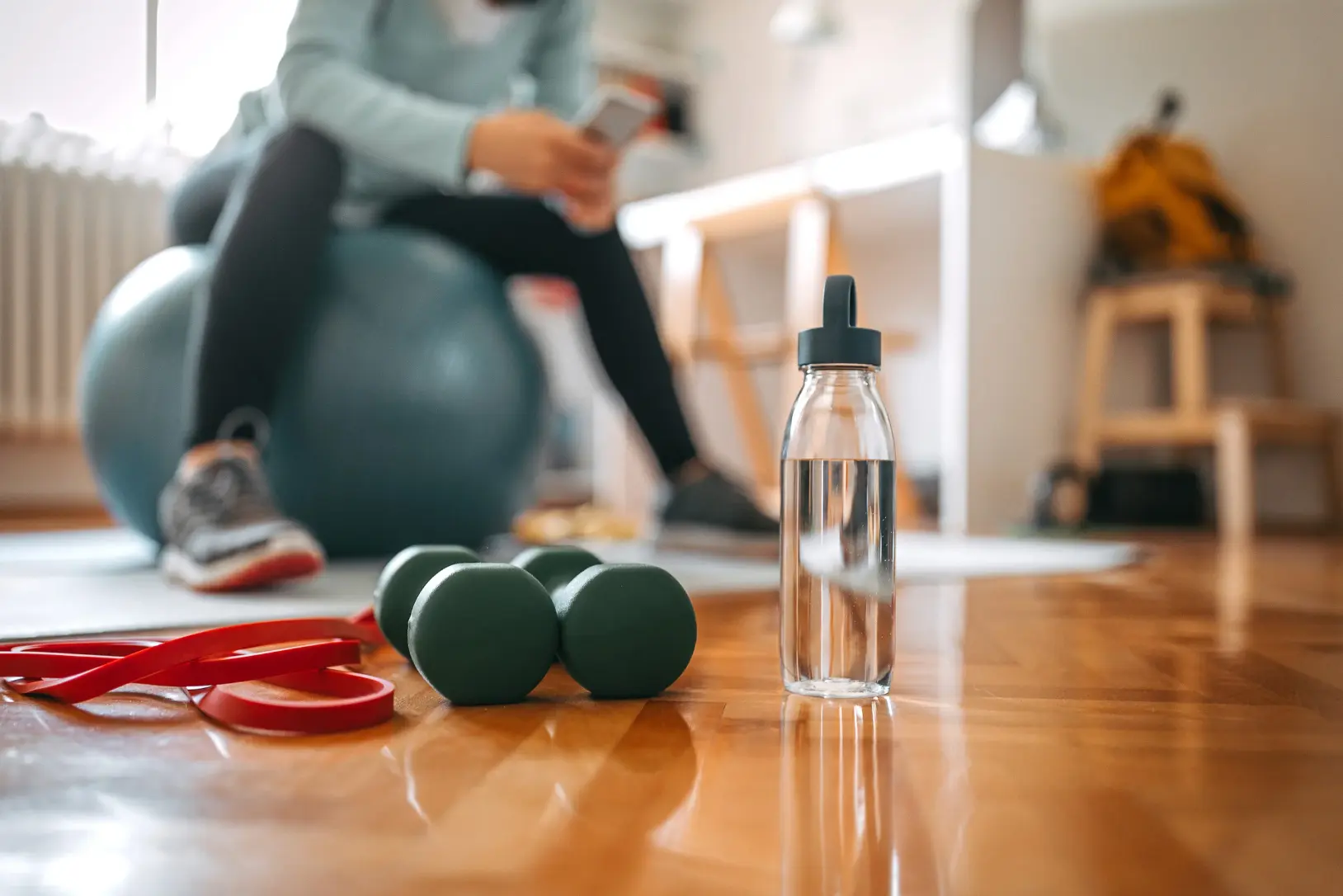
Wondering what to do the day before a big exam? This guide offers practical tips on how to prepare effectively without stress. You’ll learn how to create a study plan, review key materials, gather necessary items, and more. Let’s dive in to ensure you’re ready and confident for your big test.
Key Takeaways
- Create a well-structured study plan to break down material, allowing for focused sessions and regular breaks to reduce stress.
- Active recall and spaced repetition are key techniques for enhancing memory retention; use tools like flashcards and summarization for effective review.
- Gather all necessary materials the night before, eat balanced meals, stay hydrated, and practice relaxation techniques to support mental clarity on exam day.
Create a Study Plan for the Day
A well-thought-out study plan is your roadmap to success on test day. Breaking down your study material into manageable chunks ensures focused learning without feeling overwhelmed. Here’s how to approach it in a specific way:
- Allocate specific times during the day to cover different subjects or topics within the allotted time.
- This method prevents cramming.
- It also helps in retaining information better.
Short breaks during study sessions help maintain focus and reduce stress for students. Use this extra time to stretch, grab a snack, or simply relax, keeping your mind fresh for the next study session.
Start your day early and prioritize your study time. Mornings are often the best time to tackle the most challenging subjects when your mind is fresh. Use a study guide to organize your sessions, ensuring you cover all the necessary material before the day ends. Remember, it’s not just about the quantity of study time but the quality. Start studying effectively to maximize your learning.
Finally, review your plan and make adjustments if needed. Flexibility in your study plan allows you to address any areas that need extra attention. By the end of the day, you’ll feel accomplished and ready for the exam.
Review Key Materials
Reviewing key materials the day before your exam significantly enhances test performance. Active recall is a powerful technique that involves:
- Actively retrieving information from memory, which significantly enhances retention.
- Challenging yourself to remember and recite the information instead of passively reading your notes.
- Strengthening memory connections and boosting confidence through this active engagement.
Incorporate techniques such as using flashcards or teaching the material to someone else. These methods engage your brain in different ways, reinforcing your understanding and memory. Summarizing information in your own words is another effective strategy that helps in better retention.
Combine active recall with spaced repetition for optimal results. Reviewing material at intervals significantly enhances long-term memory retention. This approach ensures that the information stays fresh in your mind and is easily retrievable during the exam.
Highlight important information and use blurting techniques to quickly write down everything you remember about a topic. These methods not only aid in memory retention but also help you identify areas that need more focus. By the end of your review sessions, you’ll feel more confident and prepared to tackle any test questions that come your way. Here are some tips to enhance your study sessions.
Gather All Necessary Materials
One of the simplest yet most effective ways to reduce anxiety before an exam is to gather all necessary materials in advance. Create a checklist of essential items such as:
- Writing instruments
- Identification
- Any specific test-related documents like a test-authorization letter Having these items ready will save you from last-minute panic.
Preparing all your materials the night before the exam can significantly alleviate anxiety. Knowing you have certain things you need allows you to focus on the test itself rather than on logistical details. This preparation increases your confidence and sets a positive tone for the day.
Remember, being prepared is not just about having the right materials but also about having the right mindset. An important tip is to organize your materials in advance, as this can help you properly prepare for the challenge ahead. This simple step can make a big difference in your overall test performance.
Eat Balanced Meals
Well-balanced meals are crucial for maintaining energy levels and enhancing brain function before exams. A balanced meal should include:
- A variety of fruits
- Vegetables
- Whole grains
- Lean proteins
These nutrients are vital for optimal brain health and cognitive performance.
Incorporating complex carbohydrates from whole grains into your meals provides steady energy levels, crucial for maintaining focus during the exam. Recommended meals for the day before the exam include:
- Fish
- Green vegetables
- Whole wheat pasta
- Rice
These foods are not only nutritious but also easy to digest.
Protein-rich snacks, such as homemade trail mix or granola bars, help keep energy levels stable during the exam. Hydration is key to maintaining focus and cognitive performance.
Include foods that enhance brain function, such as:
- Fatty fish (salmon and sardines), which provide beneficial omega-3 fatty acids
- Nuts, particularly walnuts, which can enhance memory and overall brain health and improve memory
- Dark chocolate, which can increase memory and concentration
By eating right, you’ll be well rested and prepared as a student to tackle your exam with a clear and focused tip mind.
Stay Hydrated
Hydration is an often overlooked but crucial aspect of exam preparation. Start your day by drinking at least 500 mL of water to kickstart your hydration. Proper hydration maintains focus and cognitive function throughout the day.
To prevent dehydration and improve alertness, consider the following:
- Avoid excessive caffeine and sugary drinks.
- Stick to your regular drink coffee intake.
- Consider green tea as a healthier alternative, as it improves alertness without the jittery side effects of too much caffeine.
Plan your hydration strategy for the exam day. Since you might not be able to refill your water bottle during the test, bring plenty of water with you. Staying hydrated will help you stay focused and perform your best.
Take a Short Walk or Exercise

Light physical activity, such as a short walk, can significantly help prepare for an exam. Exercise improves learning and memory retention, reduces stress and anxiety, and boosts overall mood, making it a valuable addition to your pre-exam routine. These benefits make it a valuable addition to your pre-exam routine.
A short walk is particularly effective for reducing stress before an exam. It provides a mental break and helps clear your mind. Being outside during your walk can also help regulate your circadian rhythms, which can enhance sleep quality.
Integrate a short walk or light exercise into your day to reap these benefits. Whether it’s a stroll around the block or gentle stretching, physical activity prepares your mind and body for the challenges ahead.
Relax with Deep Breathing
Mindfulness and deep breathing techniques effectively alleviate exam-related anxiety. Deep breathing signals your brain that your body is safe, calming the nervous system. This practice is especially useful during a stressful day.
A popular technique is 2-1-4 deep breathing, which involves inhaling for 2 seconds, holding for 1 second, and exhaling for 4 seconds. Another method is box breathing, involving inhaling, holding, and exhaling for equal durations, often 4 seconds each. These techniques can help you manage stress and stay focused.
Body scan relaxation involves focusing on each part of your body to consciously release tension. Practicing these techniques reduces stress and improves overall mental health, setting you up for a successful exam day.
Set Up a Quiet Room for Sleep
A comfortable sleep environment is essential for fall asleep faster and getting a good night’s rest. Use blackout curtains or heavy drapes and block light from electronic devices to create a dark sleeping space, like a cozy bed. A dark room signals to your body that it’s time to sleep.
A cool sleep environment also contributes to better sleep quality. Aim for a temperature that is comfortable and conducive to sleep. Light exercise during the day increases melatonin production, enhancing sleep patterns and mood.
Setting up a quiet and comfortable room for enough sleep ensures you get a good night’s rest before your exam. A good night’s sleep is crucial for optimal cognitive function and overall performance.
Avoid Cramming
Avoid cramming for effective exam preparation. Stress increases stress significantly when you attempt to learn too much information at once. Last-minute studying often leads to poorer performance due to inadequate preparation over the term, leaving you feeling stressed.
It’s more effective to study in shorter, distributed sessions rather than cramming all at once. This approach promotes better retention and reduces stress. Review and short answer study sessions ensure you retain information without overwhelming your brain.
Last-minute review on the morning of the test can increase unnecessary stress. Instead, focus on relaxation and confidence-building activities. By avoiding cramming, you’ll be better rested and more prepared to perform well on your exam.
Visualize Success
Visualizing success builds confidence and reduces test anxiety. Imagine a successful big test experience, from arriving at the testing center to confidently answering all the questions for the next test. This mental rehearsal can boost your confidence and readiness.
Engage in positive rituals such as:
- Short walks
- Listening to your favorite music
- Breathing exercises
- Visualizing success
Replace negative thoughts with positive ones to enhance visualization and readiness.
Mastering test-taking skills helps reduce test-taking anxiety, allowing better academic performance during visualization. Visualizing success sets a positive tone for your exam day and increases your chances of achieving desired results in tests.
Summary
Preparing for a big exam the day before doesn’t have to be stressful. By creating a structured study plan, reviewing key materials, gathering all necessary items, eating balanced meals, staying hydrated, engaging in light exercise, practicing deep breathing, setting up a quiet room for sleep, avoiding cramming, and visualizing success, you can set yourself up for success. Follow these tips, and you’ll walk into your exam with confidence and readiness. Remember, it’s not just about studying hard but also about taking care of your mind and body. Good luck!
FAQs
Make sure to break down your material into smaller sections and set specific times to study each subject. Don't forget to schedule breaks to keep your mind fresh and reduce stress!
To effectively review key materials, try using active recall and spaced repetition, along with flashcards and summarizing the information in your own words. These techniques really boost memory retention and help you grasp concepts better.
Gathering all your materials before the exam is crucial because it minimizes last-minute stress and boosts your confidence, helping you concentrate fully on the test. Trust me, it makes a big difference!
For the best brain fuel before your exam, stick to balanced meals with fruits, veggies, whole grains, lean proteins, and even some dark chocolate. These foods will keep your energy levels up and sharpen your focus!
To effectively manage stress the day before your exam, focus on deep breathing, light exercise, and visualizing your success. These simple techniques can help calm your nerves and boost your confidence!
It’s important to get enough sleep to support optimal brain function and memory retention. Most experts recommend aiming for 7 to 9 hours of quality sleep the night before your exam. A good night's sleep helps reduce test anxiety, improves focus, and boosts overall test performance, ensuring you wake up well rested and ready to tackle the big test.








































































%201.jpg)

